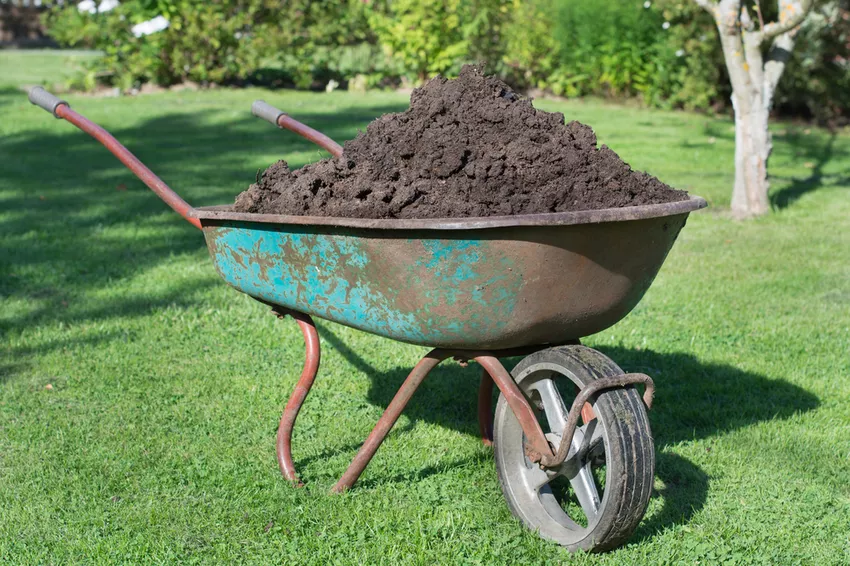Regular mowing removes valuable nutrients from the lawn. In order to compensate for the consumption, natural gardeners ignore mineral-chemical fertilizers and fall back on an organic nutrient supply. Read this guide on how to properly use lawn compost.
 In March, lawns can be fertilized with compost
In March, lawns can be fertilized with compost
Always sieve compost for lawns
Before it is spread on the lawn, compost soil undergoes thorough cleaning. Even fully mature compost contains coarse components that, in the worst case, rob noble grasses of the air to breathe. A slanting sieve is perfectly suited for the filtering process. A mesh size between 15 and 19 millimeters catches stones, twigs and other dirt. Fine-grained, loose compost accumulates under the sieve as an ideal organic lawn fertilizer.
Fertilize your lawn with compost - instructions for beginners
In March, the time window opens to spoil a lawn with compost soil. Normally stressed ornamental and play lawns will receive another gift in June/July. In autumn, a last fertilizer appointment prepares the green area for winter, ideally supplemented by a shower of potassium-rich comfrey manure to strengthen winter hardiness. How to properly fertilize your lawn with compost:
- Mow the lawn to a blade height of 4 cm
- Pour the sifted compost into a wheelbarrow
- Distribute natural fertilizer as a thin layer on the lawn
- Work in superficially with a rake
- Irrigate fertilized lawn
The absorption capacity of the lawn for compost soil is optimized if you scarify the lawn beforehand. Moss, weeds and thatch are combed out by rotating blades. This clears the way for the organic nutrients to go straight to the lawn roots.
Recommended dosage: 1 liter for 1 square meter
Each compost comes with a different nutrient content. Different compositions and origins do not allow a precise determination, as is possible for mineral-chemical lawn fertilizers. Thanks to proven empirical values, a dosage recommendation can nevertheless be made. Apply one liter of compost per square meter of lawn.
tips
There are many ways to get the perfect compost for your lawn. Best option is your own compost heap. Of course, it can take up to twelve months for self-made compost to mature. It's faster if you buy the natural fertilizer pre-packaged. Alternatively, contact a regional composting facility, local nursery, or a professionally managed community compost facility in your neighborhood.